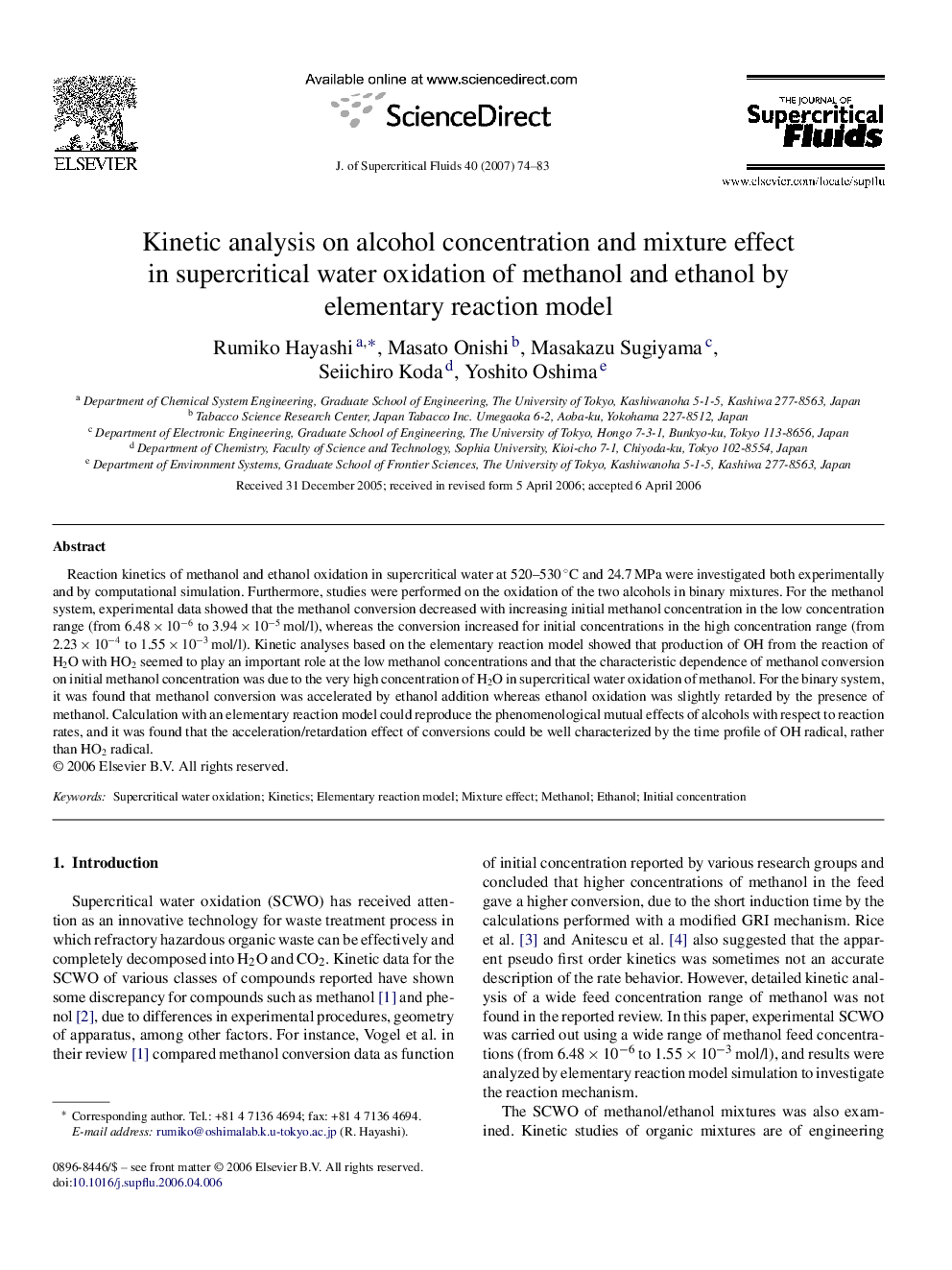| Article ID | Journal | Published Year | Pages | File Type |
|---|---|---|---|---|
| 232346 | The Journal of Supercritical Fluids | 2007 | 10 Pages |
Reaction kinetics of methanol and ethanol oxidation in supercritical water at 520–530 °C and 24.7 MPa were investigated both experimentally and by computational simulation. Furthermore, studies were performed on the oxidation of the two alcohols in binary mixtures. For the methanol system, experimental data showed that the methanol conversion decreased with increasing initial methanol concentration in the low concentration range (from 6.48 × 10−6 to 3.94 × 10−5 mol/l), whereas the conversion increased for initial concentrations in the high concentration range (from 2.23 × 10−4 to 1.55 × 10−3 mol/l). Kinetic analyses based on the elementary reaction model showed that production of OH from the reaction of H2O with HO2 seemed to play an important role at the low methanol concentrations and that the characteristic dependence of methanol conversion on initial methanol concentration was due to the very high concentration of H2O in supercritical water oxidation of methanol. For the binary system, it was found that methanol conversion was accelerated by ethanol addition whereas ethanol oxidation was slightly retarded by the presence of methanol. Calculation with an elementary reaction model could reproduce the phenomenological mutual effects of alcohols with respect to reaction rates, and it was found that the acceleration/retardation effect of conversions could be well characterized by the time profile of OH radical, rather than HO2 radical.
